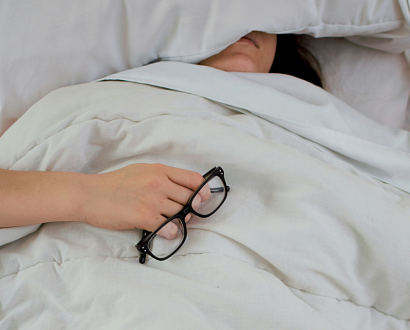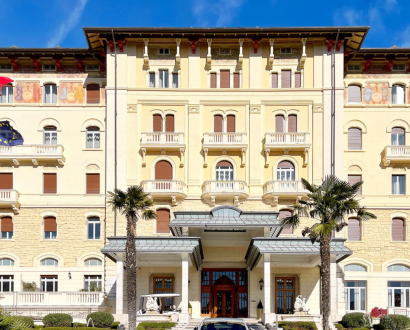In today’s world of global business it can be tempting – and in some cases even expected – to stay connected to devices and technology around the clock.
That’s especially the case for C-suite professionals who, now more than ever, can do deals, make calls, host meetings or check in with staff from any part of the world, day or night.
While 24/7 connectivity has been a game-changer for millions of firms that want to access new markets, get business done faster and, ultimately, make more money, it’s not all positive.
One drawback, for instance, is the rise of burnout among business elites who are now able, in today’s super-connected world, to work wherever and whenever they want. That’s because, for a growing number of highly driven business people, more tech means less social interaction in the real world and a higher level of work stress.
Detox on the rise
It’s for this reason, according to Griffith University’s David Tuffley, that an increasing number of high-powered business people are turning to so-called ‘digital detoxes’ to find the right mix of work and life in this tech-heavy era.
Tuffley, a senior lecturer in applied ethics and socio-technical studies, says that for people for whom technology is central to their work, such as those involved in international business and finance, getting off the internet is a must-do for mental wellness.
Total disconnection is essential, Tuffley says, due to the tendency of modern technology to creep into all parts of our daily life.
“Digital detox is an important aspect of work-life balance because by the nature of the technology we use, it encourages us to use it more and more until it gets to the point where some of us are overusing it and it becomes a problem,” he tells The CEO Magazine.
“It’s a good idea if you can scale back that overuse as a sustainable work practice; otherwise, you tend to get burnt out and the people in your life get the impression that you’re always working and don’t have time for them. It’s not good from any point of view.”
When it comes to the best method for disconnecting, he advises starting small. One suggestion, for those normally tethered to their devices, is to schedule one or two hours of digital-free time per day for activities that connect with the real world like walking in nature, making dinner, gardening or spending time with a loved one.
From there, he says the aim should be to go one day per month with devices switched off and, ideally, an entire weekend without the phone.
For many people who are heavily reliant on devices, this can be tough, Tuffley warns.
“At first, it’s going to seem like it’s some kind of imposed regimen that’s contrary to what’s good for you, but it’s really giving your brain time to normalise to the way it used to work. It gets you back into balance.”
38% of people believe they use their smartphone too much. This includes checking apps in the hour before sleep (79%) or within 15 minutes of waking up (55%).
Digital-free holidays
Jing Li, a doctoral candidate at James Cook University, takes it one step further. She says her research shows that more people, including those in the business world, are looking for holidays that get them off the grid and away from their devices.
According to Li, along with the increasing use of connected devices over the past decade, there has been a boom in internet searches related to digital-free tourism – where internet and mobile signals are either absent or digital technology use is controlled.
What’s more, she adds, is that digital ‘black hole’ resorts are becoming popular vacation spots for high-end jetsetters, especially in the UK and North America, and digital-detox holidays are new selling points for many tropical island retreats.
This demand is being driven, she suggests, both by the 24/7 culture of many companies as well as the need for families around the world to wean children off screens.
“There are more and more people demanding digital downtime away from pressurised company culture, and there are also families that are finding too much screen time is a big issue for their children,” she tells The CEO Magazine.
In addition to holidays, Li says another trend, observed in Queensland, is for people to disconnect by building vacation homes in remote areas with no connectivity.
“There are some cases where people who live and work in nearby cities own a second home for weekends or holidays where mobile technology is not an option.”
5 easy ways to digital detox
Remove distractions; don’t idolise busyness; always ask ‘why’ when you pull out your phone; limit work to eight hours per day; periodically fast from technology.
Tech-free tourism
With rising demand from both families and businesspeople for digital-free holidays, it’s little wonder that start-ups and bespoke hotels have sprung up for this new class of traveller.
There are a host of options based on Old World preferences, ranging from the pared-back island elegance of the Fabriken Furillen hotel in Gotland, Sweden, to the monastic tranquillity of the Albergo Il Monastero in Ischia, Italy.
A slightly different approach is being taken by Australian start-up Unyoked. It gives well-heeled tourists the chance to stay in cabins in the wilderness of New South Wales and Victoria, and bills itself as an opportunity to “get back to basics and focus on what matters”.
Co-Founder Chris Grant says the cabins, which cost A$200 per night and are booked out until mid-2020, tap into a “counterculture away from the nine to five”.
Grant says Unyoked’s waitlist of more than 4,000 stressed-out professionals keen to book a couple of nights out of town is proof city-dwellers are craving experiences closer to nature.
“It’s a biological need; we shouldn’t always be ‘on’. We shouldn’t have bosses pinging us at three o’clock in the morning saying they need something by seven, it’s not natural,” he points out.
“People are starting to realise that we do need to break away from it and it’s that counterculture movement that’s really carrying us forward, and that we want to champion.”







